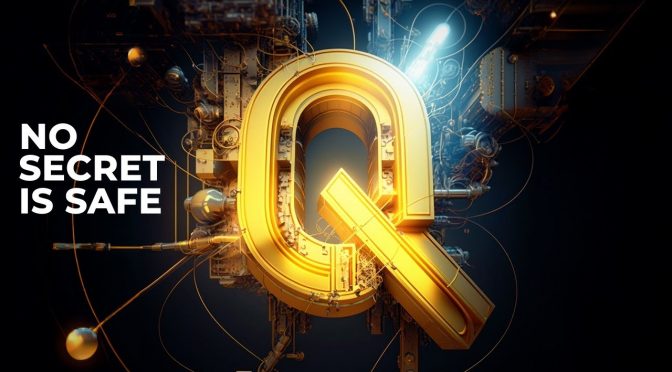In a fascinating exploration of the world of quantum computing, Derek Muller, the creator of the popular YouTube channel ‘Veritasium’, delves into the intricacies of how quantum computers are poised to disrupt the internet and our encryption systems. In his video, “How Quantum Computers Break The Internet… Starting Now”, Muller dissects the complex concepts, the progress in the field, and the potential future of encryption methods, providing an accessible and engaging understanding of these revolutionary technologies.
The Quantum Threat to Encryption
Muller begins by discussing the potential threat that quantum computers pose to our current encryption systems (such as RSA encryption). He explains that Shor’s Algorithm, a quantum algorithm that can factor large numbers exponentially faster than classical computers, could make it possible to break current encryption methods, undermining the security of digital communications and transactions.
Progress in Quantum Computing
The video highlights the rapid progress in quantum computing, specifically the growth in the number of qubits (quantum bits) available. Although we are not yet at a stage where quantum computers can break RSA encryption, Muller points out that the pace of development has been exponential, which could mean a quantum computer capable of breaking encryption may not be too far away.
A Race to Develop Post-Quantum Cryptography
Recognizing the impending threat, scientists and cryptographers have been working tirelessly to develop new encryption algorithms that can withstand attacks from both classical and quantum computers. Muller takes us through the National Institute of Standards and Technology (NIST) competition, which led to the selection of four algorithms as part of their post-quantum cryptographic standard in 2022.
Lattice-Based Cryptography
Muller offers a detailed explanation of lattice-based cryptography, one of the encryption methods selected by NIST. He presents a captivating step-by-step visualization of how the closest vector problem (CVP) forms the basis of this method, which becomes increasingly complex as the number of dimensions grows. This complexity, he explains, is what makes lattice-based cryptography a promising candidate for post-quantum encryption.
Conclusion
The video serves as an intriguing journey into the world of quantum computing and its impact on our current encryption systems. Through Derek Muller’s engaging storytelling and visualizations, the viewer is left with a deeper understanding of the challenges and opportunities that lie ahead in the ever-evolving field of cryptography. As quantum computers and AI continue to play an increasingly prominent role in our lives, it is essential for us to stay informed and appreciate the efforts of the researchers and cryptographers working tirelessly to protect our digital future.

